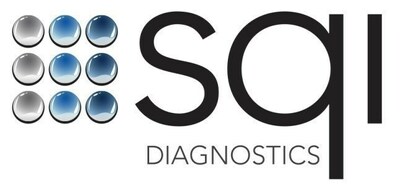SQI installs two RALI-DX systems in Toronto hospitals to fight the growing respiratory health crisis in Emergency Departments
SQI Diagnostics Inc. (TSXV: SQD) (OTCQB: SQIDF) announced the installation of its Rapid Acute Lung Injury Diagnostic (RALI-Dx™) IL-6 Severity Triage Test in two Toronto hospitals. This initiative aims to assist in managing respiratory patients amid the ongoing crisis exacerbated by COVID-19. The test identifies patients at risk of severe inflammatory responses, facilitating appropriate care in emergency departments. With an observed negative predictive value of 88.7%, the RALI-Dx test significantly aids in triaging patients, ensuring hospital resources are allocated efficiently. This strategic move underscores SQI Diagnostics’ role in advancing respiratory health solutions.
- Installation of RALI-Dx IL-6 Severity Triage Test in two Toronto hospitals, enhancing respiratory care.
- Observed negative predictive value of 88.7%, indicating high accuracy in identifying low-risk patients.
- None.
"This is a timely response to the continuing challenge of COVID-19 and other respiratory diseases," said
The number of laboratory confirmed cases of COVID-19 in
"There is currently no suitable diagnostic that can guide clinicians to rapidly assess the severity of a patient's respiratory inflammation and subsequent triage to the appropriate care." said Dr.
The Severity Triage test was initially developed to clarify COVID-19 patients' risk. By testing for the presence of the key biomarker Il-6, RALI-Dx™ helps to identify which adult patients are most at risk of a severe inflammatory response and worst patient outcomes. The intended use of the test is the screening of patients at elevated risk of intubation with mechanical ventilation versus those patients with mild illness and can be monitored at home.
The test was designed by a team of physicians at
Notes:
1. Source: Public Health Ontario.
Background to RALI-Dx IL-6
- The RALI-Dx™ IL-6 Severity Triage Test and the RALI-fast™ IL-6 Severity Triage POC Test each help clinicians identify which patients with SARS-CoV-2 will have a severe inflammatory response and should be admitted to the hospital to aid in determining the risk of intubation with mechanical ventilation.
- Both tests measure the critical biomarker IL-6 which plays a key role in the cytokine storm phase of COVID-19.
- The RALI-Dx™ IL-6 Severity Triage Test delivers results from the lab in about 60 minutes while the RALI-fast™ IL-6 Severity Triage POC test that is currently in development, delivers results at the patient point-of-care in about 15 minutes.
Contacts:
Chief Executive Officer
416-903-1955
amorris@sqidiagnostics.com
Chief Financial Officer
437-235-6563
mreddock@sqidiagnostics.com
This news release contains certain forward-looking statements, including, without limitation, statements containing the words "will", "may", "expects", "intends", "anticipates" and other similar expressions which constitute "forward-looking information" within the meaning of applicable securities laws. Forward-looking statements reflect the Company's current expectation and assumptions, and are subject to a number of risks and uncertainties that could cause actual results to differ materially from those anticipated. The forward-looking statements in this news release include without limitation, statements with respect to the Private Placement, the timing and size of any subsequent tranches under the Private Placement and the use of proceeds of the Private Placement. These forward-looking statements are qualified in their entirety by the inherent risks and uncertainties surrounding future expectations. Important factors that could cause actual results to differ materially from expectations include, but are not limited to, risks related to the failure to obtain necessary regulator and stock exchange approvals for the Private Placement, general economic and market factors, competition, the development and commercialization of the Company's diagnostics tests, the effect of the global pandemic and consequent economic disruption, and the factors detailed in the Company's ongoing filings with the securities regulatory authorities, available at www.sedar.com.
Although the forward-looking statements contained herein are based on what we consider to be reasonable assumptions based on information currently available to us, there can be no assurance that actual events, performance or results will be consistent with these forward-looking statements, and our assumptions may prove to be incorrect. Readers are cautioned not to place undue reliance on these forward-looking statements. The Company undertakes no obligation to publicly update or revise any forward-looking statements either as a result of new information, future events or otherwise, except as required by applicable laws.
This news release does not constitute an offer to sell or a solicitation of an offer to sell any of the securities in
Neither
![]() View original content to download multimedia:https://www.prnewswire.com/news-releases/sqi-installs-two-rali-dx-systems-in-toronto-hospitals-to-fight-the-growing-respiratory-health-crisis-in-emergency-departments-301724687.html
View original content to download multimedia:https://www.prnewswire.com/news-releases/sqi-installs-two-rali-dx-systems-in-toronto-hospitals-to-fight-the-growing-respiratory-health-crisis-in-emergency-departments-301724687.html
SOURCE
FAQ
What is the significance of SQIDF's RALI-Dx test installation in Toronto?
What does the RALI-Dx test measure?
What is the negative predictive value of the RALI-Dx test?








